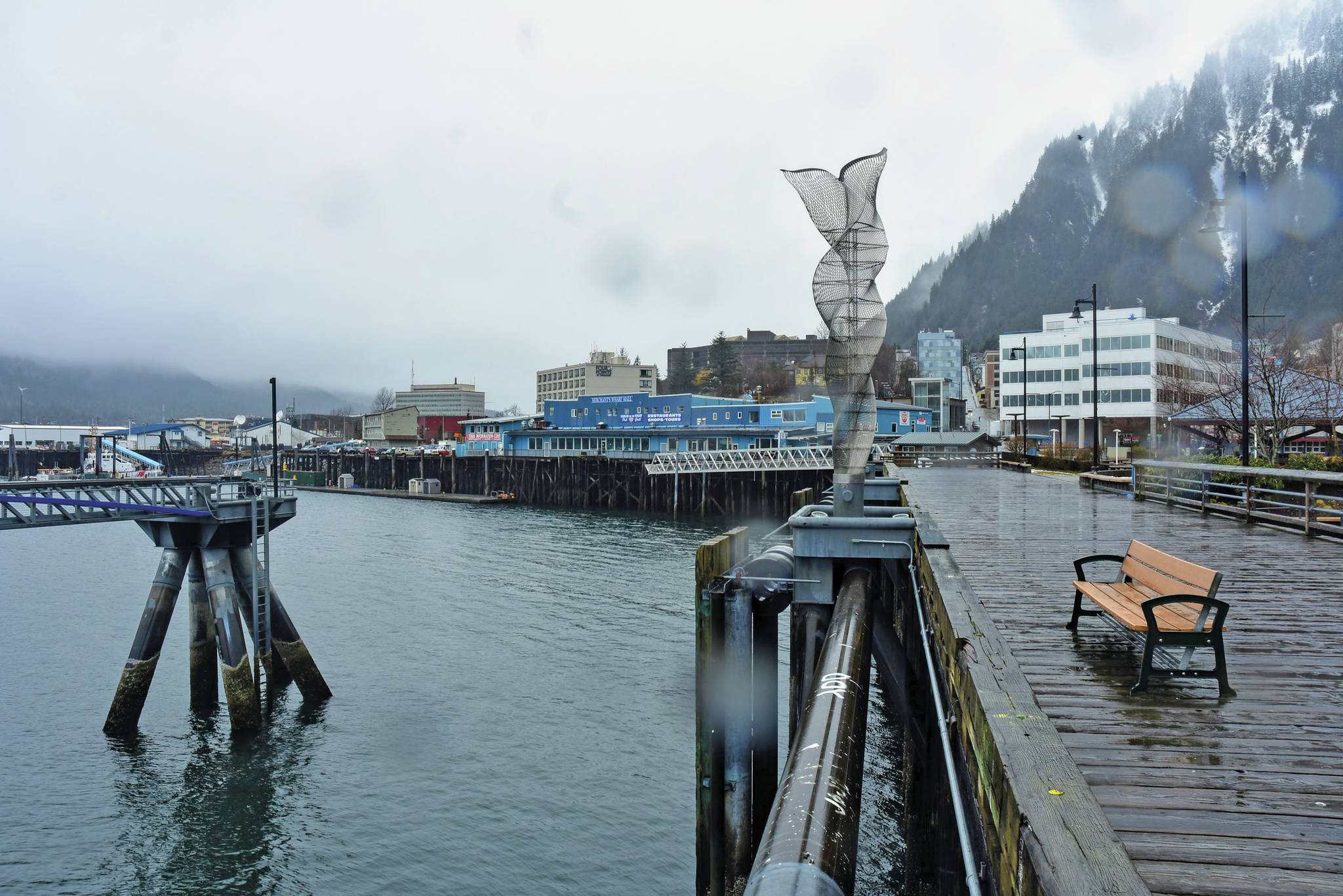City and Borough of Juneau officials gathered via Zoom Wednesday night to discuss the 2022 budget, which begins July 1. Wednesday’s meeting was the first of several sessions in which assembly members will review and ultimately pass the new budget.
“It’s been a long year,” said Rorie Watt, CBJ city manager. “It included lots of unusual and strange things, and we weathered it quite well.”
Watt said that the city expects $12.8 million in revenue from the federal government, based on the American Rescue Plan legislation passed earlier this year. Watt said this infusion of cash “will greatly ease our decision making,” though he acknowledged that all the factors combined “make for a substantially different budget season.”
The proposed citywide budget of $396 million is down $22.1 million from the 2021 amended budget.
The citywide budget aggregates the spending for all city government operations, including those that operate as enterprise operations. It also has money earmarked for capital improvements and debt service. Enterprise operations include Bartlett Regional Hospital, the airport, water utilities, and docks and harbors.
Every Wednesday until the end of May, assembly members will review proposed budgets from all component pieces to pass the final budget. The public can comment on the budget at a public hearing during a meeting on April 21 at 5:30 p.m.
New guidelines for cruise ships, but Alaksa’s still off the itinerary
Deep dive on the Manager’s Budget
At the kick-off meeting, the assembly reviewed the city manager’s proposed budget, the school district’s request and the docks and harbor budget.
The manager’s budget includes city operating expenses. The proposed budget includes $166,307,400 in spending against $158,498,800 in projected revenue, leaving a $7.8 million hole, which will be plugged with federal money.
Overall, the proposed budget doesn’t include major new spending initiatives or projects. Watt described the budget as “status quo” in that respect.
Notable changes to the fiscal year 2021 budget include reduced sales tax revenues due to a lack of large cruise ships during the first portion of the fiscal year, a .02 mill increase to the property tax rate to help fund child care and $2.8 million to cover unreimbursed school bond debt from the State of Alaska for Juneau’s public schools.
The budget also includes money for negotiated wage and step increases and employee benefits.
“The biggest recommendation is to take federal money and put it in the general fund, which is the point of the money. It provides tremendous flexibility,” Watt said.Jeff Rogers, city finance director, said that without the infusion of federal money from the CARES Act and the American Rescue Plan, the city would face a $16 million shortfall. He also said $4.6 million in federal dollars would be used to cover a projected shortfall for the current fiscal year, which ends June 30.
According to Rogers, the lack of large cruise ships continues to pressure city revenues. The proposed budget projects $45 million for sales tax revenue, as city officials expect a robust cruise recovery next season.
“Sales tax will be down in this budget,” he said. Rogers explained that 2019 was the peak sales tax revenue year with $50.4 million collected. The current year’s projected revenue is just under $40 million.
“Peak to trough, we are looking at a $10.5 million decline,” he said. “You might think of that as more like a $12 million decline, but a portion was offset set by the new, online sales tax.”
The proposed budget also projects slightly higher expectations for marijuana and alcohol tax next year, Rogers said.
Additionally, property tax growth is estimated at 1.5% but will be updated now that the assessor has submitted the final numbers. Rogers said that the proposed .2 mill tax increase represents about $1 million in additional revenue.
According to Rogers, the proposed budget won’t lead the city to a structural deficit going forward as fiscal year 2023 is expected to be more typical with growing sales tax revenue.
School board OKs funds for teaching supplies, finalizes budget
School Request
Last month, school officials finalized the 2021-2022 budget, which includes funding from the city. On Wednesday, school officials joined the assembly meeting to outline the district’s budget request.
The school district requested $29,336,100, which includes $27,264,600 for operations.
District officials also asked for an additional $2,071,500 outside of the standard funding cap to pay for high school and middle school activities, transportation shortfalls, food service and the Kinder Ready program.
Superintendent Bridget Weiss told the assembly that transportation funds from the state would be down next year because it’s based on enrollment. Enrollment sagged this school year due to the COVID-19 based interruption to in-person learning. However, district officials expect numbers to rebound next year, and the school will incur increased transportation costs without additional funding.
The request also includes money to prop up the district’s Relationships and Leadership, Learning for Youth after school child care program, commonly known as Rally. Weiss also said that her team would be taking a closer look at Rally program to determine how it can become financially self-sufficient.
Assembly members deferred action on the school district’s proposed budget until after the April 21 public hearing.
Docks and Harbors
City assembly members accepted the budget proposal presented by Port Director Carl Uchytil.
Uchytil said that Docks and Harbors face a challenging year due to the lack of revenue from tourists. He said a lack of federal relief dollars is also hampering the department’s budget.
“We don’t have deep pockets with our harbor fund budget,” he said.
He said the department is looking at user fees and cutting back on seasonal staff to make ends meet.
• Contact reporter Dana Zigmund at dana.zigmund@juneauempire.com or 907-308-4891.

